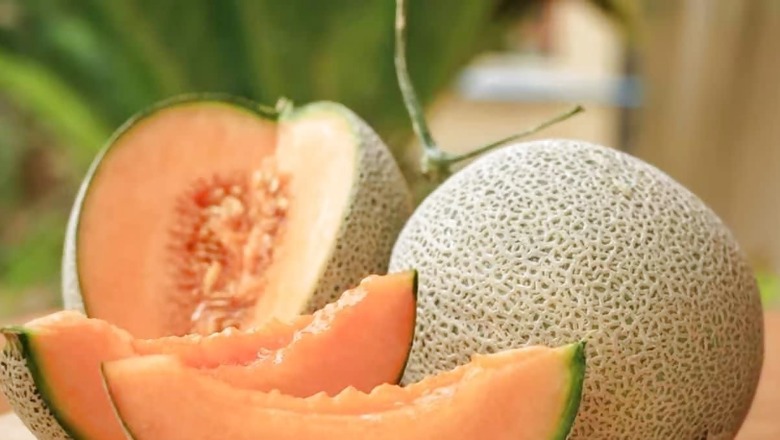
views
Come summer we start craving for fruits that would help keep our body cool. Many fruits provide relief from the scorching heat of the summer. Muskmelon, also known as sweet melon, is a refreshing fruit with a sweet and watery taste, making it perfect for the summer season. It contains high water content along with various other essential nutrients. With the summer season demanding proper hydration, consuming fruits like muskmelon can be beneficial in preventing dehydration.
So, adding muskmelon to your diet can be a delicious and healthy way to beat dehydration and stay nourished during the summer months. Apart from hydrating you, muskmelon has other properties like keeping blood pressure in check and improving digestion. As this fruit is available for sale at reasonable prices even in roadside cart shops, it is an easily accessible fruit.
When we go to the store to buy fruit like apples, oranges, and bananas, we think of choosing quality fruits. By looking at the outside of the fruits, you can know how ripe they are and whether they have started to rot. But in the case of muskmelons, it may be a little difficult to judge and buy. Allow us to guide you through it by listing a few ways you can determine if the fruit is ripe or not.
Check the colour: The first thing to check when buying a melon is its colour. If the fruit is unripe, its shell will be green in colour. It is a creamy yellow colour if the fruit is ripe.
Check the stem: Check whether the melon has a stem. In a well-ripened fruit, the stem will split off by itself. Even if the stem is intact, the tip should be rounded and smooth.
Check by sound: When selecting melons with a shell-like texture, such as muskmelons, tapping them gently can help determine their ripeness. A ripe melon will produce a dull, hollow sound when tapped, indicating that the fruit is full of juice and ready to eat. On the other hand, if the melon produces a sharp, high-pitched sound, it may not be ripe yet.
Check by weight: Another way to assess the ripeness of a melon is by considering its weight. Ripe melons typically feel heavier for their size due to the moisture content of the fruit. When you pick up a melon, if it feels notably heavy compared to its size, it is likely ripe and filled with juicy pulp.




















Comments
0 comment